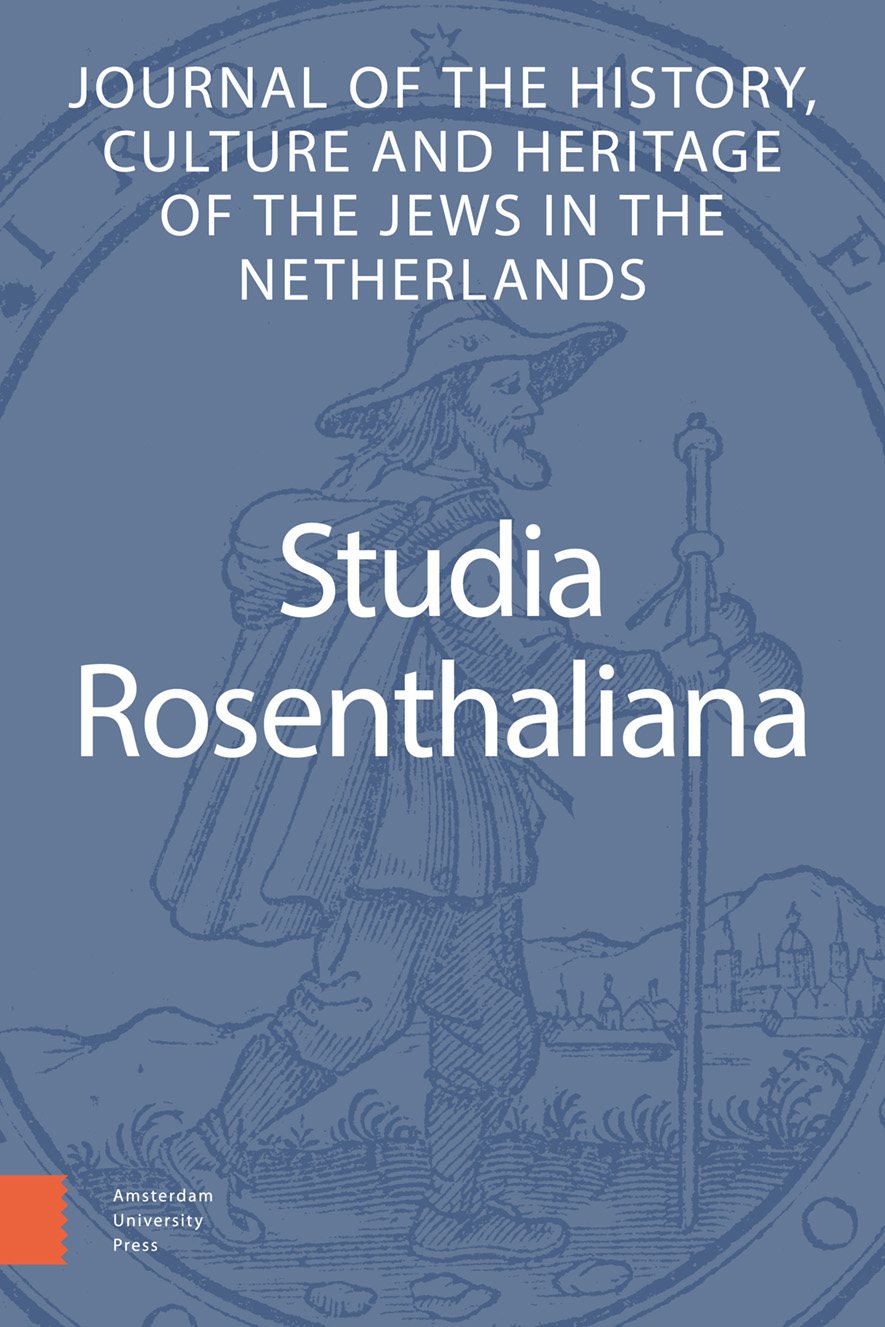- Home
- A-Z Publications
- Studia Rosenthaliana
- Previous Issues
- Volume 50, Issue 1, 2024
Studia Rosenthaliana - Volume 50, Issue 1, 2024
Volume 50, Issue 1, 2024
Language:
English
- Article
-
-
-
oa A Wealth of Goods for Times in Need: The Pawn Bank Honen Dalim amid the Portuguese Jewish Community of Early Modern Amsterdam
More LessAbstract This article on the Portuguese Jewish pawn bank, Honen Dalim, established in Amsterdam in 1624, describes an institution that was meant to assist people in need, yet in possession of goods. It was specifically directed at Jews of the Spanish and Portuguese nation. The bank was physically hidden, yet widely known in Amsterdam because of its interest-free character. Its clients were coping with crises like Read More
-
-
-
-
oa The Contested Issue of Shadarut: A Nineteenth-Century Power Struggle between the Amsterdam Vaad and Rabbi Nathan Amram
More LessAbstract The nineteenth century saw significant changes in the relationship between the Yishuv in Ereẓ-Israel and the European Jewish communities on whom they depended for financial support. This article examines the roles of two key figures in the conflict between these two centers regarding the function and continued existence of the institution of shadarut: Zvi Hirsch Lehren (1784-1853), head of the Amsterdam Vaad ha-peki Read More
-
-
-
oa Jews, History, and Home-making: Colonial Contradictions and Contemporary Challenges
More LessAbstract In the eighteenth century, Dutch Caribbean colonies constituted the center of Jewish life in the Americas. This work looks at questions of Jewishness and home-making in these colonial contexts. Jews and other in-between groups like free people of color, it is argued, offer crucial insights into the tensions and contradictions within colonial societies more broadly. The talk upon which this printed version is based disc Read More
-
- Book Reviews
-
-
-
oa The Persecution and Murder of the European Jews by Nazi Germany, 1933-1945. Vol. 5 Western and Northern Europe 1940-June 1942, executive editors: Katja Happe, Michael Mayer and Maya Peers, with Jean-Marc Dreyfus. Berlin/Boston: De Gruyter, in collaboration with Yad Vashem, 2021. ISBN 978-3-11-068333-2, 916 pp.; Vol. 12 Western and Northern Europe June 1942-1945, executive editors: Katja Happe, Barbara Lambauer, Clemens Maier-Wolthausen, with Maja Peers. Berlin/Boston etc. 2022 ISBN 978-3-11-068332-5, 921 pp.
More Less
-
-
Most Read This Month
Article
content/journals/17817838
Journal
10
5
false
en


